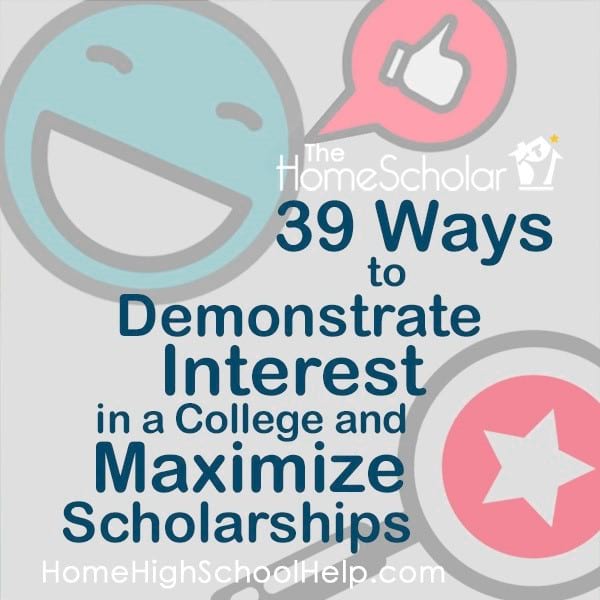39 Ways to Demonstrate Interest in a College and Maximize Scholarships
What are colleges are really looking for? Students who really want to attend a particular college need to be able to convince the school that they will stay for all four years at that one school. Universities want students who will turn down other amazing offers of admission, and will attend their own college instead. No matter what. How do you demonstrate that interest?
Students need to find a college they love. Download "Finding a College You Love" and learn expert strategies for choosing a college.
Colleges want a student who loves THEM. How do you give them what they are looking for? You have to demonstrate interest, and prove that they are the college you REALLY want to attend.
1. Always visit the campus
2. Apply the first day that the application is open
3. Arrange an appointment with the admissions office
4. Ask the college a question on Facebook
5. Ask follow up questions by email after your visit
6. Ask your college contact to comment on an issue written about in the student paper
7. Attend a class in session during your visit
8. Attend a virtual tour
9. Attend lectures by the faculty
10. Call the admissions counselor
11. Carefully read (and meet) the admission policy and procedures
12. Carefully read (and meet) the admission requirements
13. Carefully read (and meet) the homeschool admission policy
14. Eat a meal on campus
15 .Email an admission advisor
16. Engage them on Twitter
17. Fly or drive a long distance to visit
18. Follow them on Instagram
19. Get great letters of recommendation and send them, even if it's optional
20. Go on an overnight visit
21. Like, share, and comment on their Facebook posts
22. List them as your top college choices on the SAT or ACT
23. Meet with alumni in your area
24. Modify the application essays to be specific for that college
25. Participate in open campus events and fellowships
26. Read a summary of their facts and data in a reference book
27. Request an application when visiting
28. Send Thank You Notes by Email to Demonstrate Interest
29. Send test scores without seeing scores first
30. Skype interview with the admissions department or faculty in a department you are interested in
31. Tag them on social media
32. Take online classes there
33. Take parents to visit
34. Tell them, "you are first on my list"
35. Tour the campus
36. Use the college's own application, not the Common App, when possible
37. Visit other campuses they may have
38. Visit their booth at a college fair
39. Write all application essays, even if they are optional
When you demonstrate interest in a college, and prove that they are top of your college list, you are more likely to get scholarships. Learn more about How to Create the WOW Factor for College Admission
If you have a college-bound high school 10th, 11th, or 12th grader, learn more about how to get college admission and scholarships now, while there is still time to get great results!
The college Launch Solution is a 3-year system providing comprehensive training for parents and teens, with college planning tools and resources, and the opportunity for on-going support and encouragement. Learn more about the College Launch Solution.
SAT®, AP®, and CLEP® are trademarks owned by the College Board, which is not affiliated with, and does not endorse, this blog post or The HomeScholar, LLC.
When you subscribe to the blog, we will send you an e-mail when there are new updates on the site so you wouldn't miss them.

 Login
Login







.jpg)

Comments